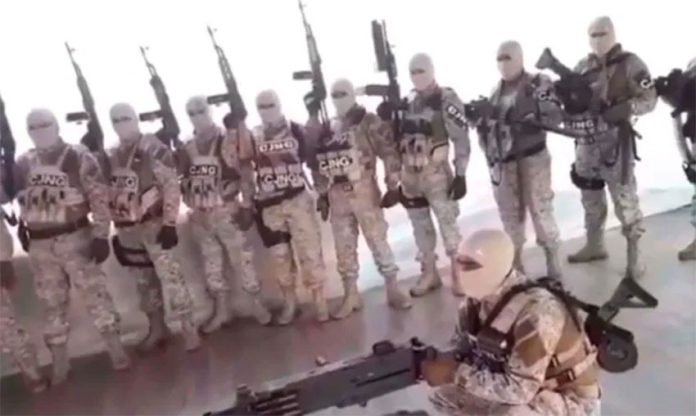United States President Donald Trump’s assertion that he will designate Mexican drug cartels as terrorist organizations is election rhetoric and unlikely to happen, according to some experts.
Trump said in an interview Tuesday that he has been working on the designation for the last 90 days and that it “absolutely” will happen.
However, a visiting academic at the Mexico City university CIDE told the newspaper Milenio that he doubted that the designation will take place.
“It has to be looked at with a lot of skepticism but that doesn’t mean that Mexico cannot come across problems,” said Alexis Herrera, who specializes in security issues.
“In the end, it’s a call for intervention in the internal affairs of a country that has sovereign policies and it’s also a call [to the Mexican government] to take a clear position on the issue [of cartels],” he added.
Herrera said that the failed operation to capture El Chapo’s son, Ovidio Guzmán López, in Culiacán, Sinaloa, last month and the massacre of nine members of the LeBarón family near the Sonora-Chihuahua border in early November gave Trump the opportunity to make his terrorism designation declaration.
Another academic, Ibero University researcher Javier Urbano, said he expects the U.S. president to continue his hardline rhetoric towards Mexico and drug cartels in an attempt to leverage a political advantage in the lead-up to the 2020 presidential election.
He said that whether the designation happens or not, Trump’s remarks are damaging to the Mexican government, which has favored attacking cartels’ financial structures over using direct force against them.
“They [the United States government] are discrediting the anti-drug trafficking policy in our country. That’s not what the president [Donald Trump] is saying explicitly [but] it’s implied. That leaves the government of Mexico in a highly questioned and criticized position,” Urbano said.
He added that Foreign Secretary Marcelo Ebrard will be forced to enter into negotiations with U.S. authorities to ensure that Trump’s claim doesn’t become a reality.
In an interview with the newspaper Reforma, an organized crime expert at the Washington, D.C. think tank Brookings Institution said that designating Mexican cartels as terrorist organizations wouldn’t give the U.S. government any new tools with which to fight them.
“The United States already has the same range of tools [to use] against the cartels without the need of a [terrorism] designation,” Vanda Felbab-Brown said. “Furthermore, it would restrict other kinds of policy measures.”
She pointed out that Mexican cartels are subject to the U.S. Foreign Narcotics Kingpin Designation Act, that prohibits people from providing material support to foreign criminal groups.
Cartel assets in the U.S. can also be seized and bank accounts can be frozen in accordance with the act, which became law in December 1999.
Writing in El Financiero, journalist Raymundo Riva said neither the White House nor the U.S. Department of State was aware of plans to make the terrorist designation, and described it as another action by Trump that was neither analyzed nor planned.
